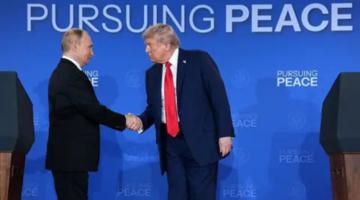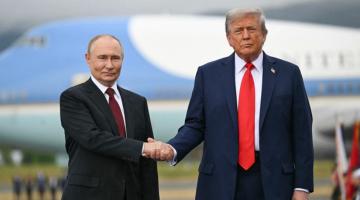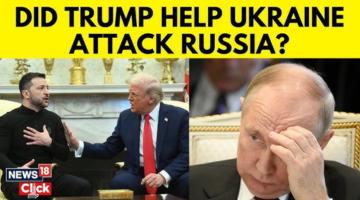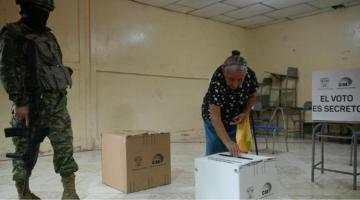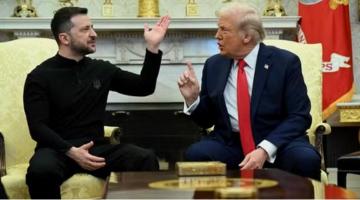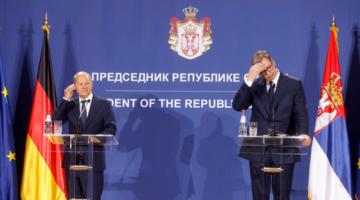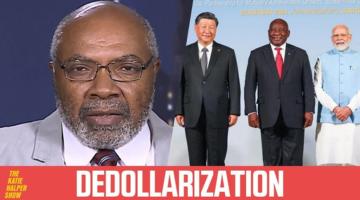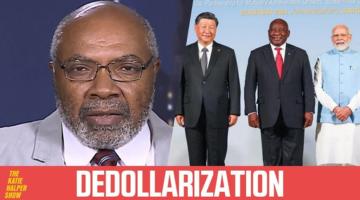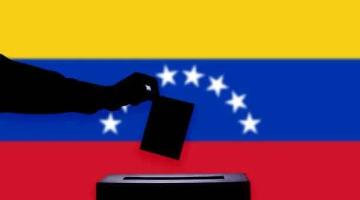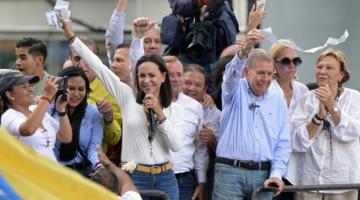In 1996 the Clinton administration very openly interfered in Russia's election. The successful effort to keep Boris Yeltsin in office led to his protege Vladimir Putin becoming president.
I have a little story to tell you.
There was this country that had a political leader that they hated. I mean…they hated him. He was an embarrassing boor who drank too much, seemed to be unable to walk and talk at the same time, or do either one very well independently either, but more importantly to the people he supported policies that made life much, much harder for regular citizens.
Realizing that his virulent unpopularity greatly reduced his chances of winning the upcoming election for president, the embattled leader begged for help from his backers in another country, who came to the rescue and made sure he was elected, even though the people really did despise the man. The people were genuinely confused about how this man even won because, you know, they hated him so much. But he did. However, all the outside help in the world couldn’t save the hated leader from himself, and his presidency has gone down in history as the most corrupt and ignominious of all the presidents of that country.
Now if you think I’m talking about the US and Trump, think again. I’m talking about Russia and Boris Yeltsin. And this isn’t a little story I made up, it is actually the truth about how the US helped the most hated president of post-Soviet Russia win a re-election campaign that he was not going to win, because the people really did hate the man.
And why, you wonder, did Russians hate Boris Yeltsin so much? Well, after WWII, the Soviet Union was stretched thin with military interventions in socialist countries that were under threat of attack by capitalist forces (i.e. the US and its European allies), the US-led Cold War, and the accompanying arms race resulted in the collapse of the Soviet Union. That’s a quick and dirty and incomplete assessment, but I hope you get the idea.
After Soviet leader Mikhail Gorbachev didn’t handle the restructuring of the Soviet Union very well and introduced unpopular market-friendly policies to appease Washington and the West, Boris Yeltsin began maneuvering in the background of Communist Party politics to position himself to challenge a weakened Gorbachev for power. It took him about 6 years, but he seized upon the fortuitous efforts of Lithuania to declare their independence from the Soviet bloc to grandstand against Gorbachev publicly, which gave him enough political clout in 1991 to persuade a majority of deputies in the Russian parliament to amend the constitution and establish an executive presidency for Russia, to be chosen by direct national ballot. Yeltsin won that election by a landslide and became the first elected president of post-Soviet Russia.
There was a dramatic kidnapping of Gorbachev in Crimea by the former Soviet hardliners, the military junta they sent to Moscow to return the country to central rule, but that failed when the officers of the military in Moscow threw their support behind Yeltsin. Yeltsin then suspended the Russian Communist Party and implemented his own “shock doctrine” style economic reforms. He ended price subsidies to spur the economy towards the market and told parliament, wary of the reforms that went further than Gorbachev’s, "Everyone will find life harder for approximately six months, then prices will fall." But that is not what happened.
Instead, inflation rose in 1992 by 2,000%. The savings of millions of Russians were wiped out. People were forced to eat less because of high prices of food. The catastrophe of Yeltsin’s market reforms went on for two years, and it was so bad that the same parliament that changed the constitution at his request to allow him to be elected now refused to obey him when he demanded that they change the constitution again to dissolve parliament that was now criticizing him. Undeterred and obstinate, Yeltsin ordered the dissolution of parliament anyway, fired his VP - neither of which he had any constitutional authority to do - and in response, many of the parliamentarians barricaded themselves in the White House - Russia’s parliamentary building - rather than be forcibly removed by his unconstitutional dissolution.
So Yeltsin turned his army loose on parliament, which shelled the building all day on October 4, 1993. And this pretty much did Yeltsin in with the people of Russia, who were literally already going hungry because they couldn’t afford enough to eat under the market-friendly “reforms” he ramped up to appease you-know-who. He was not going to be re-elected in 1996. So he called his friend, US president Bill Clinton, to help.
And yes, Bill “First Black President” Clinton SENT A WHOLE TEAM TO MANAGE THE FAILING RE-ELECTION CAMPAIGN of Boris “Everybody In Russia Hated Him” Yeltsin. Don't believe me? Google Time Magazine cover, July 15, 1996. You’re welcome. Why did Clinton do it, you ask? Because the US would rather have Yeltsin in office to expand capitalism in Russia than have his challenger, very popular Communist Party member Gennady Zyuganov, become president and close Russia off.
But despite being re-elected by US election interference, Boris Yeltsin was forced to resign anyway because he was still terrible and the people still hated him. Who did he name as his successor? Then Prime Minister Vladimir Putin, who was very popular. Putin served out Yeltsin's term and remained president for eight years until 2008 when Dmitri Medvedev won the next election. But Putin won re-election in 2012 and has been president since.
If the US had left the disastrous Yeltsin re-election campaign rot on the vine as it was clearly doing and let the people of Russia choose who they wanted to lead back in 1996, perhaps we would not be talking about war in Ukraine. Or maybe we would. Who’s to say?
What I can say is that when we anti-imperialists talk about ending US imperialism, we do mean everywhere it shows up, even in Russia, where the US exerted its “soft power” to influence the re-election of a man people in Russia never would have elected again.
I can also say that now that you know this history, I don’t want to hear any more about Russia interfering in US elections, either. If the best Putin could do to influence elections in the US was to share some Facebook memes, then he is clearly an amateur compared to the US.
Jacqueline Luqman is co-host of By Any Means Necessary on Radio Sputnik. She is also a contributor to The Real News Network, Editor-In-Chief of the social media program Luqman Nation, and a contributor to Black Power Media. She has more than 20 years of activism in Washington, DC focusing on participating in and supporting community-level issues as well as regional and national issues that impact working-class, poor, and oppressed people in the US and abroad. She is a member of the Black Alliance for Peace, Pan-African Community Action, is a supporter of several other grassroots radical Black-focused and led organizations, and is an active member of the Board of Social Action in Plymouth Congregational United Church of Christ, a progressive church in Washington, DC.

